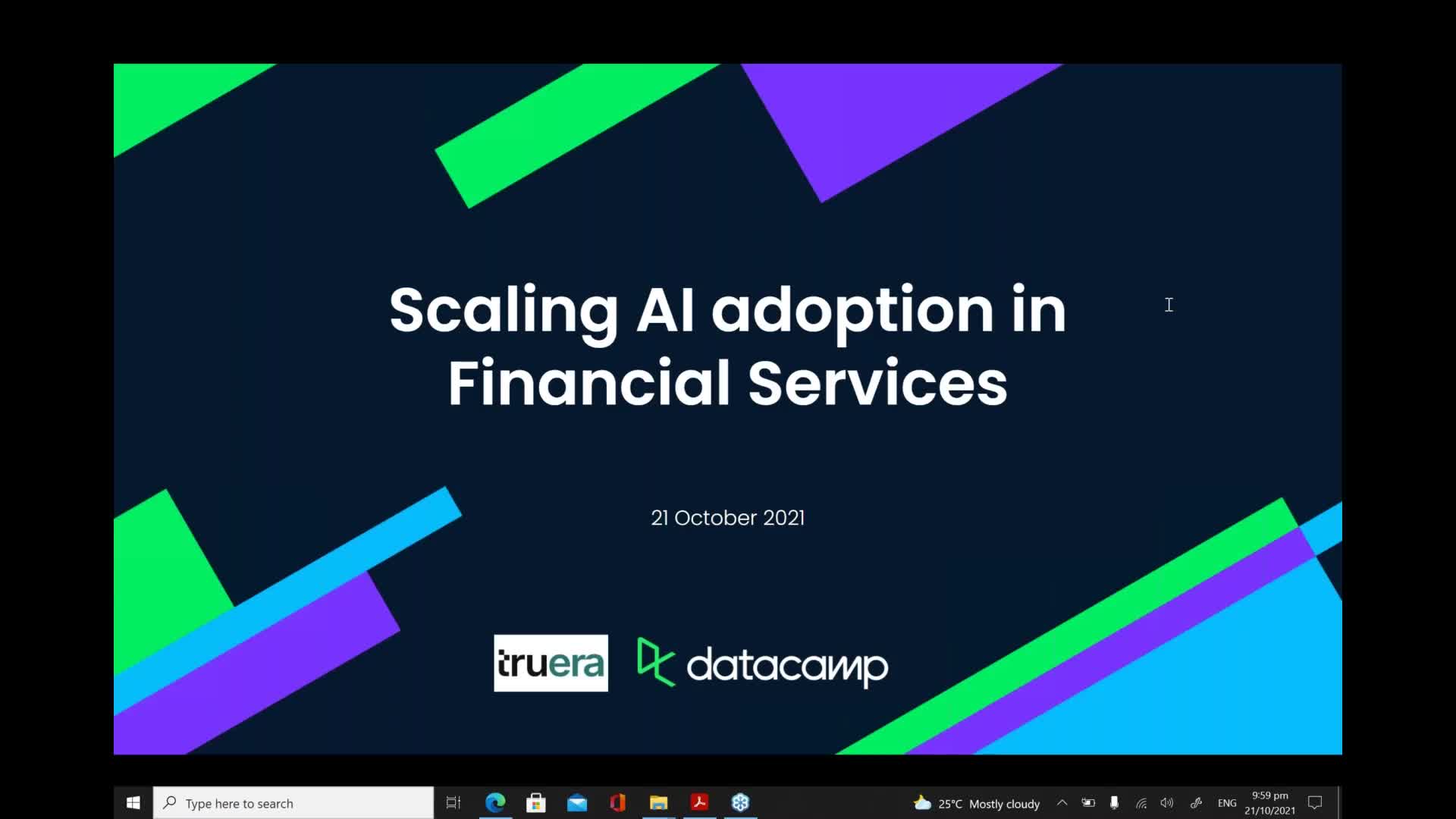Direkt zum InhaltWeitere Informationen





Lautsprecher


Shameek Kundu
Trainierst du 2 oder mehr?
Erhalten Sie für Ihr Team Zugriff auf die vollständige DataCamp-Bibliothek mit zentralisierten Berichten, Zuweisungen, Projekten und mehrVerwandt
white paper
Digital Transformation in Finance: Upskilling for a Data-Driven Age
Tackle the unique digital transformation challenges for the finance industry.webinar
Webinar | AI, Finance, and Algorithmic Trading
Investigate how AI, ML, and data science impact finance and algorithmic trading.webinar
Artificial Intelligence for Business Leaders
We'll answer the questions about AI that you've been too afraid to ask.webinar
How AI Can Improve Your Data Strategy
Find out how AI, ML, and data science can inform your data strategy.webinar
Going Beyond FAQ Assistants
Drive strategic business value with AI assistants.webinar
Artificial Intelligence in Finance: An Introduction in Python
Learn how artificial intelligence is taking over the finance industry.Join 5000+ companies and 80% of the Fortune 1000 who use DataCamp to upskill their teams.
Loved by thousands of companies
